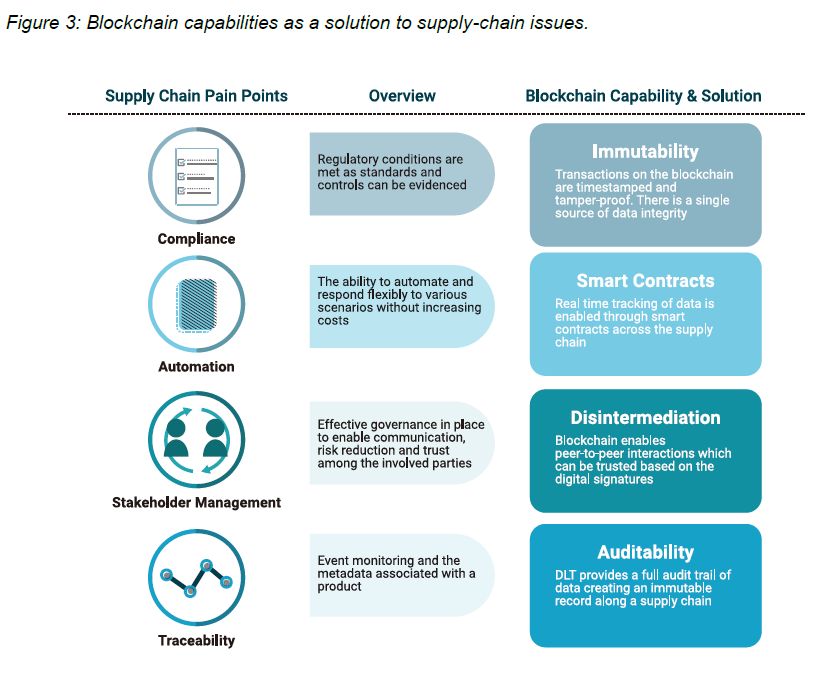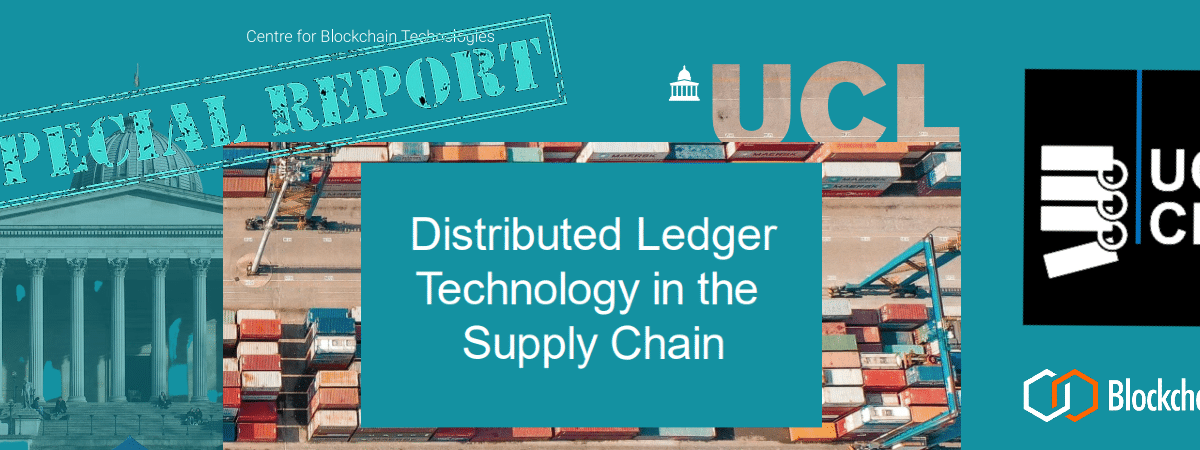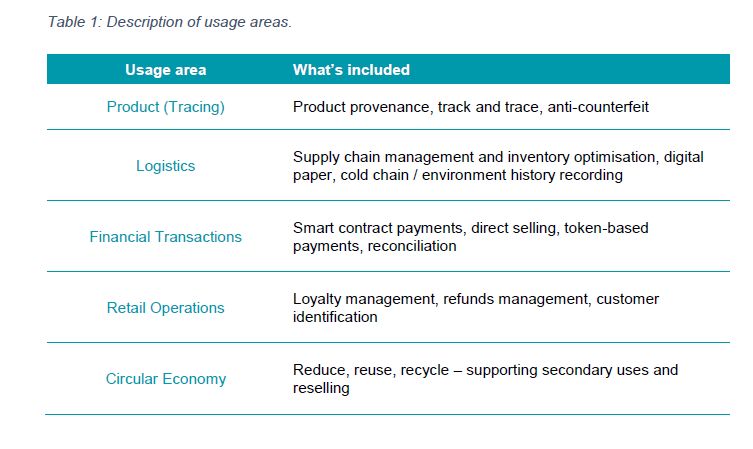The University College (UCL) London Centre for Blockchain Technologies (CBT), with the support of the UK Retail Blockchain Consortium (RBC), has released a market report looking at the adoption of Distributed Ledger Technology (DLT) in physical supply chains.
Get a copy of the report here.
“Despite the increasing opportunity for digitisation and looming disruption, currently, application areas and progress of DLT adoption in this area are not well understood. This report seeks to shed light on where DLT is being applied functionally in global physical supply chains and within certain sectors.”
This report is the first comprehensive outlook on the state of DLT in the global physical supply chain sector.
Food provenance is an increasingly hot topic for the industry and both start-ups and corporate projects are working to develop DLT-based solutions, and substantial progress has already been made. IBM’s Food Trust initiative which counts Walmart, Carrefour, Albertsons, Unilever and Nestle among its members.
The report also notes that Dutch market-leading supermarket chain Albert Heijn which has implemented a blockchain traceability pilot for its orange juice sales, in partnership with its supplier (commodity major Louis Dreyfus). Customers buying orange juice can scan a Quick Response (QR) code to not only find out where the orange juice came from but also to do a ‘Like2Farmer’, where they can send a message directly to the fruit pickers at the source.
The report covers more than just food:
- Product (Tracing)
- Usage Area: Logistics
- Usage Area: Financial Transactions
- Usage Area: Retail Operations
- Usage Area: Circular Economy
In a retail context, the most significant domain in which blockchain can create transformational change is the physical product supply chain. By putting assets first, blockchain can enable an efficient flow of data and funds from each stakeholder at each step of the chain. This can deliver fundamentally new ways of working and brings visibility and control on each supply chain which is simply not achievable in centralised configurations where data has to pass from one environment to the next. However, transformation is never straightforward – particularly so in the context of increasingly complex supply chains with multiple manufacturers, processors and distributors along the way. It requires collective engagement and industry-level initiatives to drive adoption and deliver benefits to the supply chain participants and end consumers. Figure 3 describes how DLT addresses some of the major pain points in supply chains.

The UCL CBT, with the support of the Retail Blockchain Consortium (RBC), have created a market report looking at the adoption of Distributed Ledger Technology (DLT) in physical supply chains. This report is the first comprehensive outlook on the state of DLT in the global physical supply chain sector. As part of this report over 100 different projects have been analysed including start-ups, corporates, consortia and government that are implementing various aspects of DLT in the application areas of tracing (provenance), logistics, financial transactions, retail operations and circular economy. This initial report looks more closely at the impacts of DLT in the physical supply chain in the application areas in the Grocery, Fashion and Healthcare sectors.
Get a copy of the report here.
- University College London Centre for Blockchain Technologies Releases New Report on Supply Chains – January 31, 2020
- World’s Leading Research and Advisory Company Gartner Says Blockchain Smart Contracts Can Increase Corporate Overall Data Quality by 50 Percent – January 31, 2020
- Dubai Wants to Clone Crypto Valley in the Desert – January 29, 2020
- The National Bank of Cambodia (NBC) to Launch Blockchain-Based, Central Bank Digital Currency (CBDC) – January 29, 2020
- Swiss company Overfuture To Offer Tokenised Equity Crowdfunding (Security Token Offering) – January 29, 2020
- Leading Cryptocurrency Trading Solution Company Algoz to Provide Liquidity London Football Exchanges – January 28, 2020
- Global Commodities Blockchain Trading Platform VAKT Backed For $5m From Saudi Aramco Energy Ventures – January 28, 2020
- Token Taxonomy Workshop – – January 24, 2020
- Deloitte Bullish on Libra Project in New Report – January 22, 2020
- Busted: SEC Charges Blockchain Marketplace Founder Sergii “Sergey” Grybniak for Fraudulent ICO 2017 – January 22, 2020
- DC Blockchain Advocacy Group US Chamber of Digital Commerce Supports Telegram Vs. SEC Case – January 22, 2020
- BIS Forms New Central Bank Think Tank to Assess National Cryptocurrencies – January 22, 2020
- Bank of England Pondering National Cryptocurrency – January 22, 2020
- Infamous Online Gaming Community Clanbase to Relaunch With Blockchain Technology in 2021 – January 21, 2020
- Chainalysis: 2019 Saw More Cryptocurrency Hacks – Total Amount Stolen From Exchanges Dropped To $283 Million – January 21, 2020
- J. Christopher Giancarlo, former Chairman of the US Commodity Futures Trading Commission – January 21, 2020
- Ethereum Classic Labs Donates $1 Million to UNICEF Innovation Ventures – January 20, 2020
- Busted: SEC and U.S. Attorney’s Office for the District of New Jersey Files Lawsuits Against Fraudulent ICO that raised $30 million – January 17, 2020
- Kenya Issues Second ICO Warning After Investors Lose €24+ Million Euro – January 17, 2020
- Neufund Wraps Tokenised Equity Crowdfunding Series B with Greyp Bikes raising €1.4m EUR – January 17, 2020
Also published on Medium.






